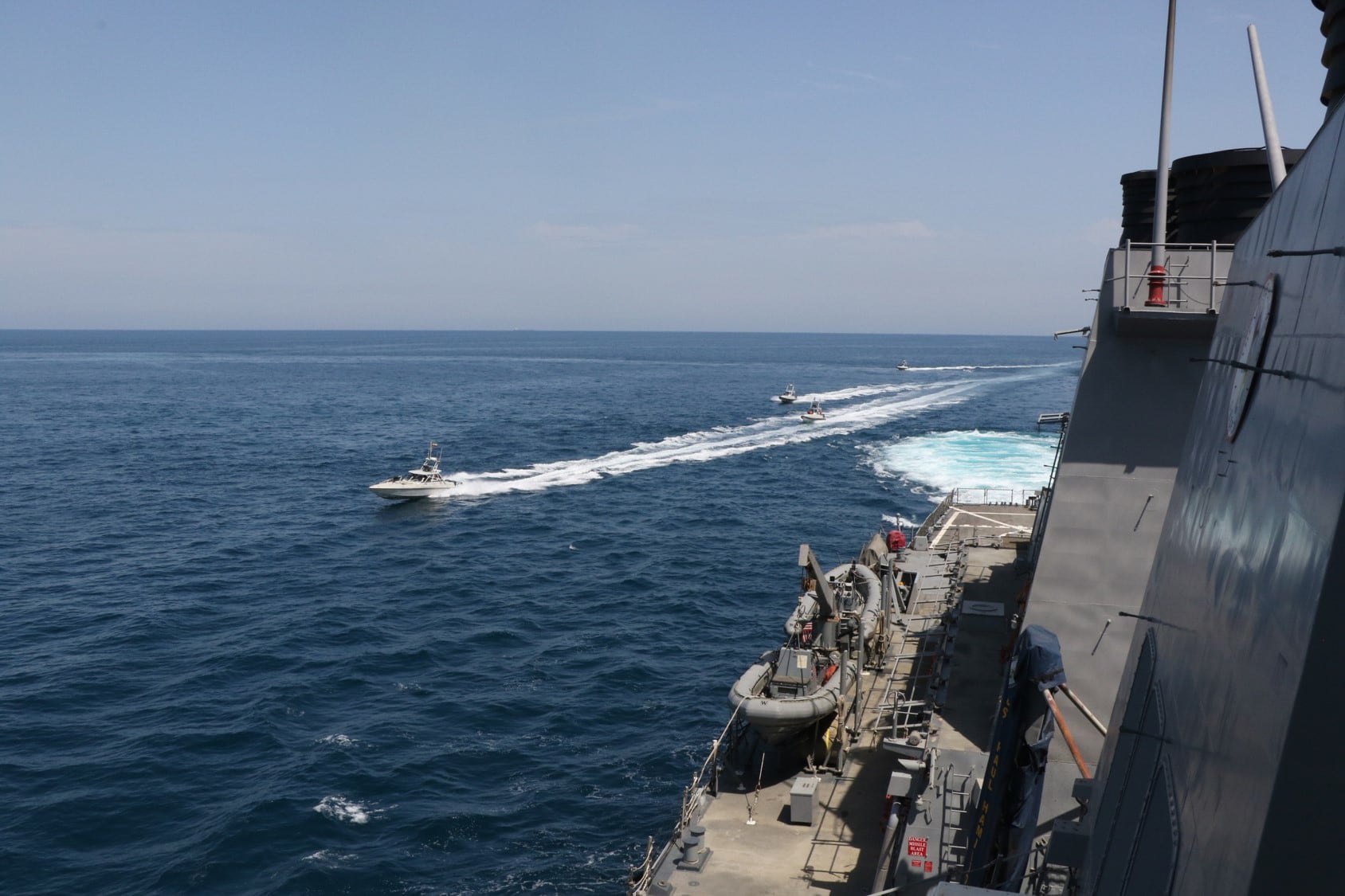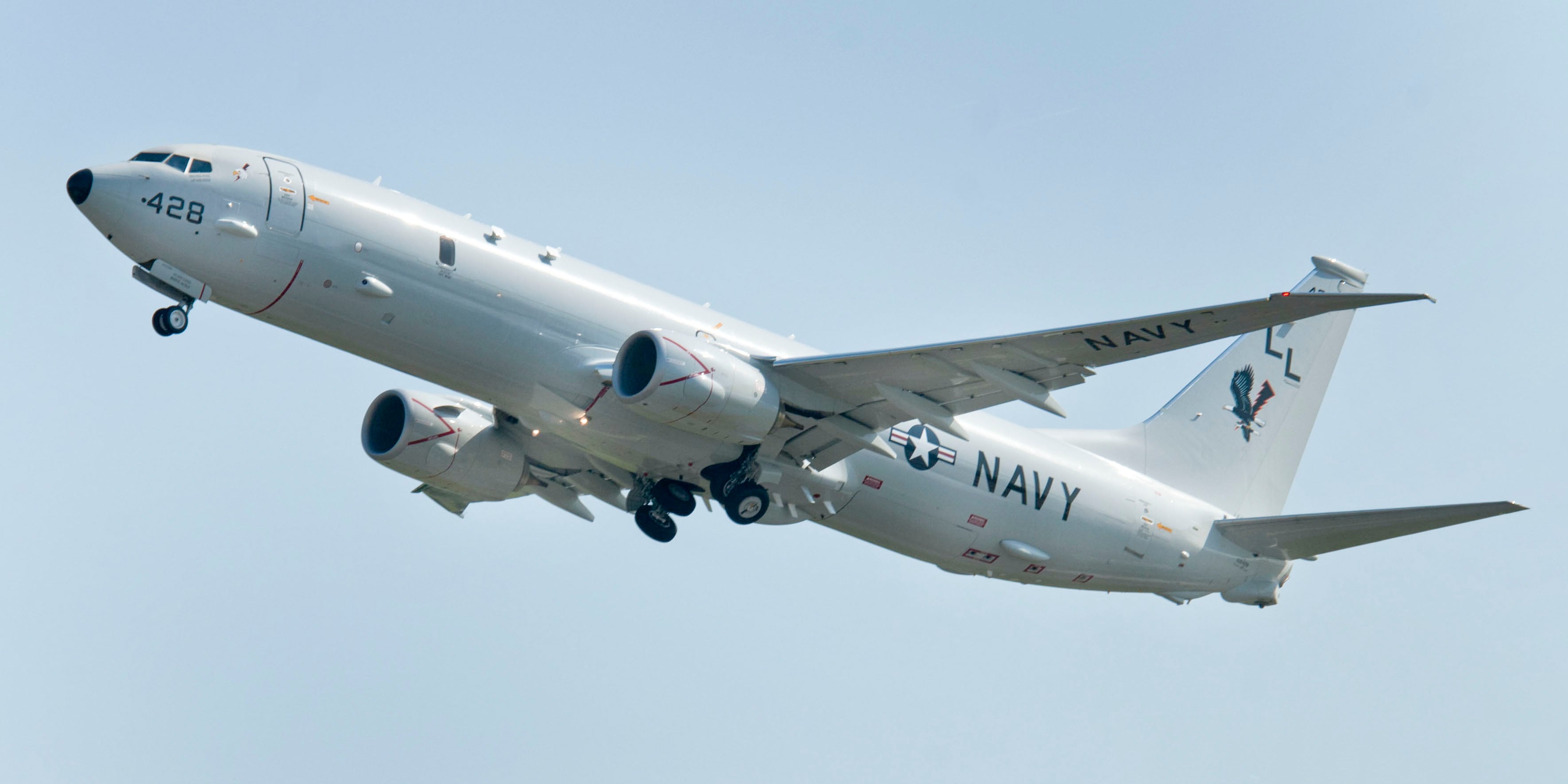As COVID-19 continues to create the perception of global chaos we’re all living in the 1989 Billy Joel hit song “We Didn’t Start the Fire” — the reality is tensions with traditional American foes have always been smoldering.
As COVID-19 has impacted U.S. readiness and even sidelined the Nimitz-class aircraft carrier Theodore Roosevelt, there’s a brewing perception that America’s adversaries Russia, China and Iran are taking advantage of the chaos to prod American military weakness as the U.S. stumbles during COVID-19.
But a former U.S. defense official and other analysts say recent aggression by America’s adversaries is nothing new and fit a pattern of behavior established over the years. There is, however, fear the virus could cause miscalculation leading to a broader conflict.
“It’s just a continuation of kind of what’s been going on for some time,” said Mike Jones, who served as U.S. Central Command chief of staff in 2011 under then-commander James Mattis. “I don’t think this is brand new.”
On April 19 there was an “unprofessional” and “unsafe” intercept of a U.S. Navy P-8A Poseidon over the Mediterranean Sea, the Navy announced. It was the second intercept of a P-8 over the same waters in less than a week — though the Navy deemed the first incident as safe and professional.
RELATED

On April 14, 11 Islamic Revolutionary Guard Corps vessels harassed six U.S. warships operating in the Persian Gulf. On Wednesday, President Donald Trump tweeted he has instructed the Navy to “destroy” any Iranian gunboats if they harass U.S. warships.
At the Pentagon on Wednesday, the vice chairman of the Joint Chiefs of Staff, Gen. John Hyten, a former commander of American, called Trump’s tweet a useful warning to Iran.
Voice of America reported that China has stepped up patrols in the South China Sea and that a Chinese aircraft carrier with five other ships were spotted conducting an exercise near Taiwan in April.
“You’ve also seen that the Chinese Communist Party is exerting military pressure on Taiwan and coercing its neighbors in the South China Sea, even going so far as to have — so far as to sink a Vietnamese fishing vessel,” Secretary of State Mike Pompeo said Wednesday.
The Ticonderoga-class guided missile-cruiser Bunker Hill, amphibious assault ship America, Arleigh-Burke class guided missile destroyer Barry, along with the Australian Anzac-class frigate Parramatta teamed up for operations in the South China Sea on April 13, according to the Navy.
Retired Marine Lt. Col. Dakota Wood, a senior research fellow with the Washington, D.C.-based think tank The Heritage Foundation, told Military Times that recent machinations by American adversaries fit “established patterns of behavior," but still serves as a reminder that global competition still rages and the U.S. military needs to be postured to deal with it.
“Whether it is exploiting a perception of U.S. military readiness, only they would know that," Wood said.
“Before COVID-19 even became a part of our vocabulary we had Iranian gunboats that would make runs at U.S. Navy ships,” he explained. “The Russians have been buzzing our aircraft for a very long time.”
“I think it’s business as usual despite COVID-19,” said Aaron Stein, the director of Middle East and national security projects for the Foreign Policy Research Institute. “Iran has not stopped its policy of coercion, stemming from U.S. actions taken to reimpose sanctions.”
RELATED

But COVID-19 could create false perceptions of weakness and disunity causing an adversary to wrongfully assume the U.S. will not respond to certain actions that could turn into a broader conflict.
“The U.S. is politically weak — COVID-19 is proving it every day. Whether or not these actors want to press the Trump administration is a different question,” Eric L. Robinson, a former U.S. defense, official told Military Times.
Robinson said he helped advise Elizabeth Warren’s presidential campaign regarding counterterrorism issues.
“COVID-19 merely is a factor that can lead to miscalculation,” Jones said. “If they were to assume this is one more destraction that would keep the U.S. from responding to an attack or challenge it could add to the possibility of miscalculation.”
Jones said American diplomats need to be working hard during this time to ensure countries know America’s red lines to avert a conflict.
Prior to Trump’s tweet threatening Iran, U.S. officials have been clearly voicing that America’s forces stand ready to deter and react to any aggression despite the ongoing pandemic.
“Adversaries who think now is the time to challenge the #USA: you’re dangerously wrong,” Secretary of Defense Mark Esper tweeted in mid-April.
“This pandemic does not curtail our duty. From patrolling the high seas to escorting Russian bombers out of U.S. airspace, our mission continues,” Esper tweeted April 14.
Russian aircraft on several occasions over the last two months have entered the Alaskan Air Defense Identification Zone, but they have not breached U.S. air space.
“To those who wish us harm, make no mistake: even with the challenges that this disease has brought to our shores, the Department of Defense stands ready to meet any threat and defend our nation,” Deputy Secretary of Defense David L. Norquist said in early April.
Shawn Snow is the senior reporter for Marine Corps Times and a Marine Corps veteran.




